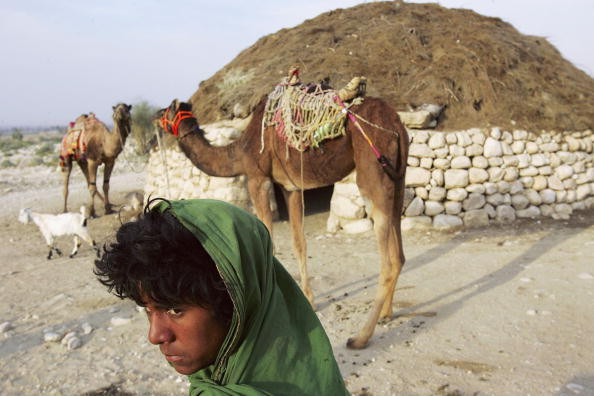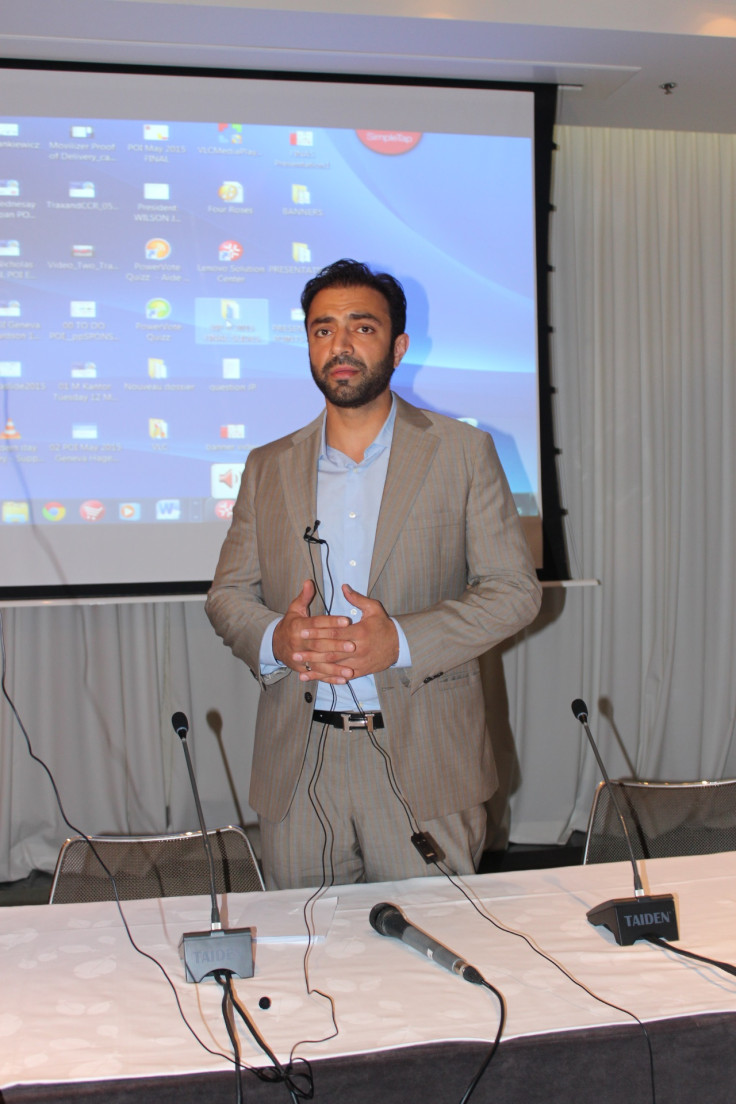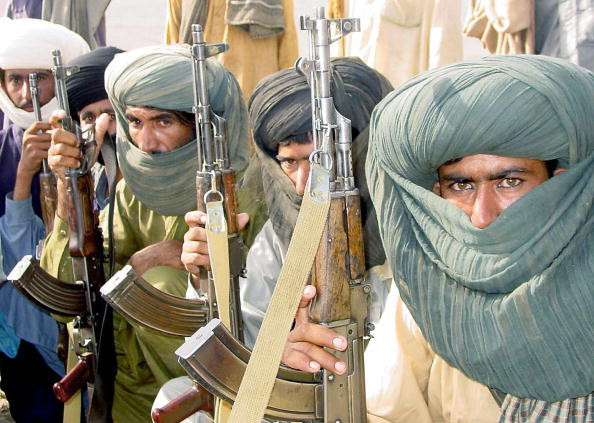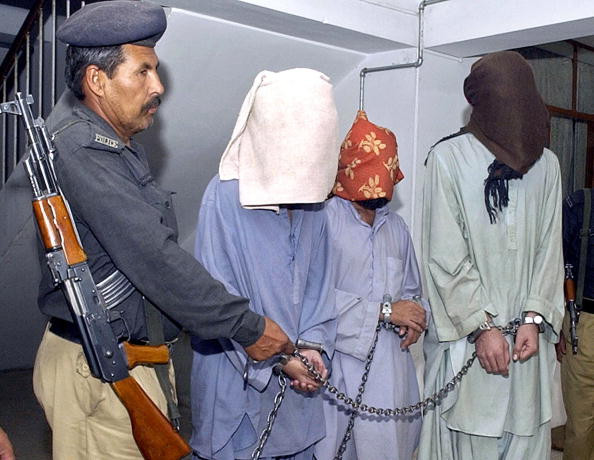Balochistan: Baloch leader calls citizens 'most oppressed in world', urges halt to aid to Pakistan

The Balochistan community is one of the most persecuted in the world and Baloch people are abducted and killed for demanding independence from Pakistan, activists have warned.
Balochistan
- Capital: Quetta
- Population: 7,914,000 (2011 census)
- Largest cities: Gwadar, Turbat, Khuzdar, Sibi and Kalat
- Major ethnic groups: Baloch, Pashtun, Brahuis
- Languages: Urdu, Balochi,Pashto, Sindhi, Brahui
- Religion: Sunni Islam, Shite Islam
Balochistan history
Balochistan, a large area bordering Afghanistan to the north and Iran and the Arabian Sea to the south, is inhabited mainly by Baloch, Pashtuns and Brahuis, and smaller communities and tribes such as Iranian Baloch, Hazaras, Marri and Bugti.
Balochistan was invaded by Britain in 1839. As a result of the invasion hundreds of people, along with the then Baloch ruler Mir Mehrab Khan, died.
Balochistan was then divided into three parts: Northern Balochistan and Western Balochistan were given to Persia and Afghanistan respectively, and Eastern Balochistan was under British rule until 1947.
After the British left, Balochistan was annexed to Pakistan. According to some, the then ruler Khan of Kalat was forced to sign accession documents despite a previous document recognising the independence of the Baloch people which had been signed by the British, Balochistan and the upcoming Pakistan administration.
Since then, Baloch separatist groups demanding independence have engaged in armed struggles with the Pakistani government.
During an armed struggle in 2006, Balochistan's leader Nawab Akbar Bugti was killed by the Pakistani government, which accused him of being a warlord and using the Balochistan Liberation Army as a facade to run his own militia.
During a conference held in Geneva on 26 June, human rights activists and members of the Baloch Republican Party (BRP) urged the international community to pay attention to crimes committed by the Pakistani government against Baloch people.
BRP's founder Brahamdagh Khan Bugti – who fled Balochistan in 2006 after his grandfather and prominent Baloch leader Akbar Khan Bugti was assassinated – said: "Baloch are deprived of their national identity, their land and resources.They are the most oppressed people in the world, but unfortunately their plight has been ignored by the international community for years.
"After the assassination of my grandfather, military operations, abductions and killings have become a routine in Balochistan, where people are subjected to a systematic genocide in response to their call for independence," he continued.
"Thousands have been forced to flee to neighbouring countries and they now live in miserable conditions."
Bugti also alleged that the Pakistani government has intensified its attacks on Balochistan following investments provided by China, which he said will "bring more deaths and destruction".
He added that anti-terrorism funds provided by the US are also contributing to a spike in the attacks, while Pakistan "continues to export terrorists to Western countries overseas and next door.
"We appeal to the UN and the international community to immediately suspend aid to Pakistan and pave the way for independence of Balochistan," he continued.
Dr Lakhu Luhana, chairman of the World Sindhi Congress, said: "In recent days there has been an unprecedented escalation of ferocity on Baloch and Sindhi people in Balochistan. We are living under fascist rule, which is worse than Hitler in Germany.

"They [Pakistan] want to finish Baloch and Sindhi people once and for all. They want to convert us to minorities. If the international community fails to stop this, it will fail us, it will fail humanity. "
Human Rights Watch has released several reports on abducted people in Balochistan. In 2015, the NGO said that since 2009 authorities have recovered the bodies of 4,557 suspected victims of enforced disappearance and subsequent extrajudicial execution, of which 266 remain unidentified.
"Those figures reflect the brutal toll of government agencies' deplorable practice of abducting people and then denying holding them, or not providing information about their fate or whereabouts," the report read.
"Such enforced disappearances – most often of men and boys – occur regularly throughout Pakistan, particularly in Balochistan and north west Pakistan, but also in Punjab and Sindh provinces. Under international law, an enforced disappearance is a 'continuous' crime: it persists, and continues to inflict suffering on the victim's family, as long as the fate of the missing person is unknown or concealed."

Amnesty for Baloch militants
The 500-strong BLA is Balochistan's largest separatist group. It has carried out several deadly attacks against Pakistani police, army members and civilians since its formation in 2000.
One of its deadliest attacks occurred in 2009, when the group kidnapped and killed 19 Pakistani police personnel in Sui, Dera Bugti District.
Pakistan declared BLA a terrorist organisation in 2006, while the UK deemed it as a proscribed group.
Earlier in June, Balochistan's provincial government announced a general amnesty for Baloch nationalist militants engaged in armed struggles with Pakistan.
"It was decided that a peaceful, conciliatory Balochistan policy will be implemented so that the youngsters who want to lay down arms and join the mainstream can be granted amnesty and be encouraged to rehabilitate themselves," the government said in a statement, urging those who are living in the mountains to go back to their families.

Pakistan's response
When contacted by IBTimes UK, the London High Commission for Pakistan said: "The allegation that Pakistan Army 'routinely abducts and kills' Baloch people for demanding independence from Pakistan is completely false. Balochistan is an undisputed and integral part of Pakistan from its very inception.
"There are some political and economic grievances which have been raised by the Balochistan province over the years. The Federal government is cognisant of these and is making efforts to address this through a political process and economic measures," the commission continued, adding that terrorist organisations are involved in activities in Balochistan.
"These terrorist organisations, with the help of some external elements, have time and again admitted to killing security personnel and also innocent people," the commission said. "The organisations that continue to use violence will have to be taken on by the state and the security agencies are the tool to do that end. So it is not the army but the state of Pakistan that has taken on these terrorist organisations. In any case within Balochistan it is the Frontier Corps that is the lead agency and not the army.
"The judiciary in Pakistan is independent. Cases have been lodged in the courts regarding missing people or those killed. Not a single case has been proven against the security agencies in any illegal disappearance or extrajudicial killing.
"Another aspect of this manoeuvre is to internationalise this issue through media and other NGOs who don't have ground knowledge but tend to believe these self exiled leaders of so-called 'Baloch Struggle Movements' which are in effect foreign-funded terrorist organisations."
© Copyright IBTimes 2025. All rights reserved.






















